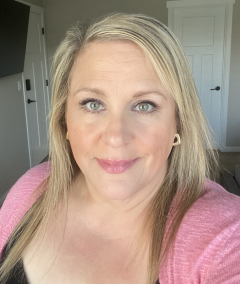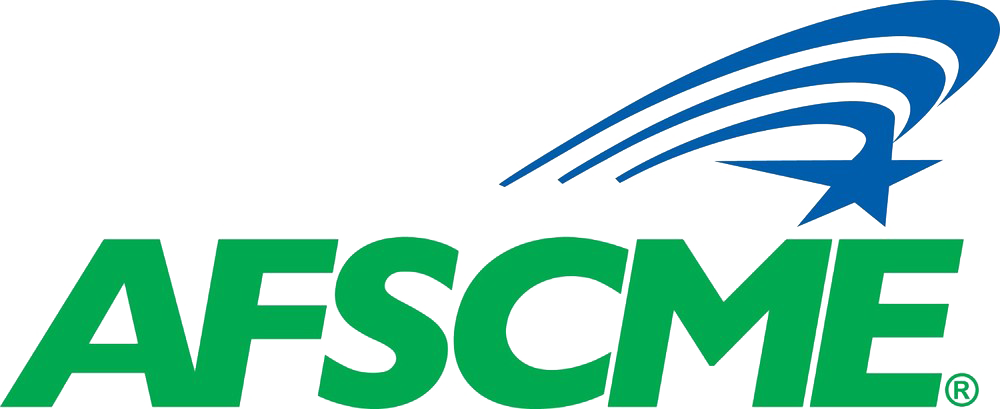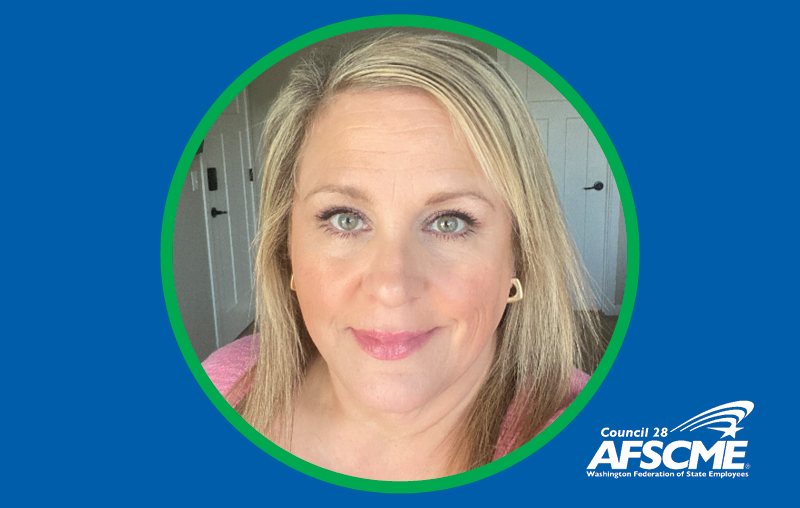As a new DCYF employee, Michele Anslow was dismayed when her entire unit was dissolved and employees were reassigned to less than ideal roles and offices. By working together with her union siblings, Anslow successfully advocated for herself and her coworkers to have a say in the process. And thanks to a title review process instigated by her union, Anlow received a pay raise.
 “My job is working with families to help keep families together, keep children at home and provide resources and services to strengthen the family and keep the family intact,” said Anslow, a Social Service Specialist at DCYF since October of 2023.
“My job is working with families to help keep families together, keep children at home and provide resources and services to strengthen the family and keep the family intact,” said Anslow, a Social Service Specialist at DCYF since October of 2023.
Before starting at DCYF, Anslow had been a foster parent and adoptive parent for almost ten years, often volunteering in the foster care community.
“I decided to go back to school and get my master’s. It’s always been a passion of mine and I decided, why don’t I make this my career?” she said.
Like many of her coworkers, Anslow feels a passion to help vulnerable kids and support families during tough times. Despite the sometimes heart-rending and dangerous nature of her work, she was committed to showing up and making a difference in her new role at DCYF.
An Abrupt Transition
But the day before Thanksgiving of that year, Anslow and her coworkers were suddenly informed that their unit was being dissolved. Employees were told that they’d be reassigned to other offices, some much further from their homes, and possibly to new, higher-risk roles in the field.
“It was very upsetting and really surprising and out of the blue,” Anslow said.
“When we spoke to management, there was no flexibility on their part. This was just how it was happening,” she recalled.
Anslow had been a union member before her role at DCYF, and she knew working with her union might make a difference. She and her coworkers connected with WFSE Local 889 president Jeanette Obelcz, and the group began to explore what options were available.
More Options
Through a demand to bargain, this group of WFSE members were finally heard by management.
“There were more options in terms of what units we could work in. There was more of a discussion instead of it just being a mandated switch,” Anslow said. “Working with our union and having that support and that advocacy really changed the course of how this all happened.”
During this process, Obelcz noted that when Anslow was hired, she was incorrectly placed into a level two role, despite being qualified for a higher paying level. A request was made to review her qualifications, and she was placed at the correct, higher salary step.
“The biggest difference WFSE made was the piece about the compassion that the agency didn’t provide,” Obelcz said. “If you’re asking, ‘What is the difference that our union makes?’ It’s our stewards, who provide that compassion and a person to walk you through something that a lot of times, our agencies are lacking.”
Anslow noted the irony of the abrupt delivery and lack of care in the reassignment process, given the agency’s professed dedication to retaining employees and stemming the flow of turnover that wastes public money and negatively impacts services and the safety of employees.
“What we were experiencing and seeing was very contradictory to what they had been saying about the effort to retain employees,” she said. “If I didn’t have my union and the opportunity to request change, I would have just left. They were aware that several people were going to have to quit.”
Flourishing With Our Union
Fortunately, union advocacy and solidarity among members cleared a different way forward.
“Management benefitted too, because now I’m doing this other job in an office and team I’m happy with,” Anslow said. “I’m doing really good at my job.”
Thanks to union advocacy, Anslow is flourishing in her new role. She encourages public employees to take union membership seriously. She cites regular pay raises, a voice at work, and advocacy.
“If it was something that me and my coworkers tried to advocate for ourselves, I don’t think we could have done it without the backing and support and advocacy of our union,” she said.
Public workers like Anslow are called to serve, and they need someone to have their back.
“As social workers, sometimes people have difficulty advocating for themselves, even though they advocate for others,” Anslow said. “[Union membership] will improve pay. It’ll improve working conditions. I do believe that there’s strength in numbers.”

